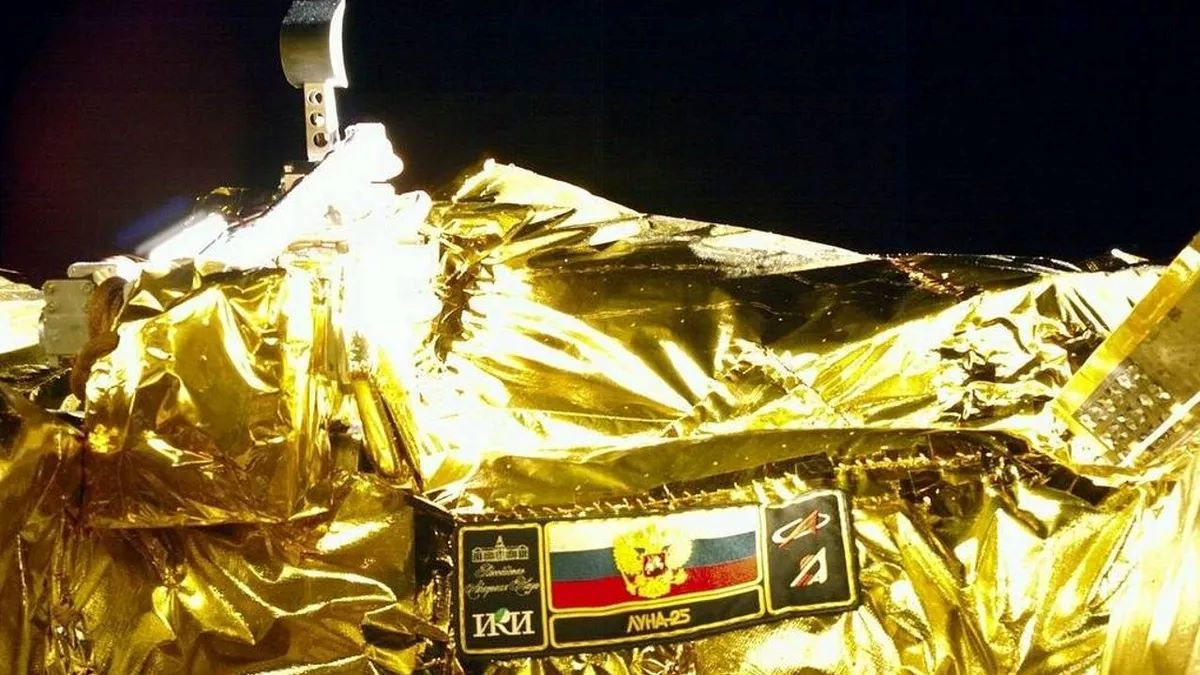In a turn of events that has reverberated throughout the global space exploration community, Russia’s highly anticipated Luna-25 spacecraft mission encountered a significant setback as it crashed into the moon’s surface. This unfortunate incident occurred after the spacecraft experienced an uncontrolled orbit, leading to the abrupt end of its mission. This unexpected turn of events has not only cast a shadow over Russia’s space ambitions but has also highlighted the challenges and complexities inherent in space exploration.
Unraveling the Unfortunate Incident
Russia’s space corporation, Roskosmos, confirmed that the Luna-25 spacecraft crashed into the moon following an uncontrolled orbit. The mission, which was meticulously planned and executed with the intention of achieving a soft landing on the moon’s south pole, encountered what Roskosmos described as an “abnormal situation.” This situation emerged as mission control attempted to transition the spacecraft into a pre-landing orbit in preparation for the scheduled touchdown.
A Prelude to Disappointment: Roskosmos’ Efforts
The disappointment stemming from the failure of Russia’s Luna-25 mission is compounded by the significant efforts put forth by Roskosmos to ensure its success. With decades of experience in space exploration, Russia’s contributions to the field have been pivotal, from launching the historic Sputnik 1 in 1957 to propelling Yuri Gagarin into space in 1961. However, the decline of Russia’s space power since the Cold War era has been evident, and the Luna-25 incident serves as a somber reminder of this evolution.
A Brief Retreat from Lunar Exploration
Remarkably, Luna-25’s intended mission marked Russia’s return to lunar exploration after a substantial hiatus. The last attempt, Luna-24, took place in 1976 under the leadership of Leonid Brezhnev. The more recent Luna-25 endeavor was poised to execute a soft landing on the moon’s south pole, with the scheduled landing date set for 21 August. This aspiration was underscored by the anticipation of groundbreaking discoveries and insights into the moon’s composition.
A Race to Reach the Moon: Global Competitors
Russia’s lunar ambitions have been closely monitored on the international stage, particularly as it competes with other spacefaring nations. India’s Chandrayaan-3 spacecraft, scheduled to land on the moon’s south pole, presented a rival mission in direct competition with Luna-25. Beyond this, China and the United States have both displayed advanced lunar ambitions, vying to make significant strides in lunar exploration.
Unveiling Broader Challenges: Economic Implications
The incident involving Luna-25 also underscores the broader challenges faced by Russia’s economy, which has been grappling with various pressures, including Western sanctions. With an economy valued at $2 trillion, Russia’s high-technology sectors, including space exploration, are under scrutiny as the nation navigates geopolitical tensions. The economic repercussions of this mission failure extend beyond the realm of space exploration, reflecting the intricate interplay between science, technology, and global politics.
The Way Forward: Resilience and Learning
While the Luna-25 mission did not achieve its intended objectives, it is crucial to acknowledge the resilience and determination inherent in the field of space exploration. Setbacks and failures are inherent in the pursuit of pushing the boundaries of human knowledge and exploration. The lessons learned from this incident will undoubtedly contribute to the refinement of future missions, as Russia and other nations continue to strive for advancements in space technology and understanding.
In summary, the unexpected crash of Russia’s Luna-25 spacecraft serves as a poignant reminder of the challenges and complexities that characterize space exploration. This incident underscores the need for perseverance and adaptability as humanity ventures into the unknown realms of the cosmos. As we reflect on the events surrounding Luna-25, it becomes clear that setbacks, while disappointing, are integral to the greater journey of discovery that propels us toward a future of unparalleled scientific achievement.

[…] worth noting that Russia’s Luna-25 probe might also attempt a south pole landing, potentially by August 21, adding a competitive aspect to these moon exploration […]